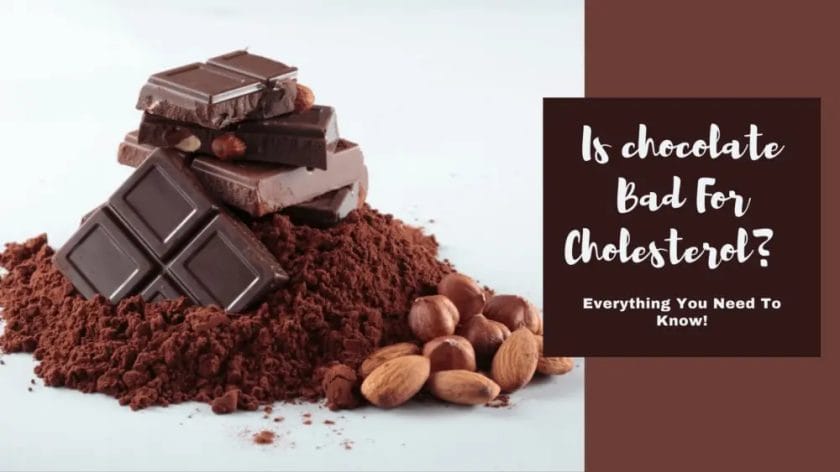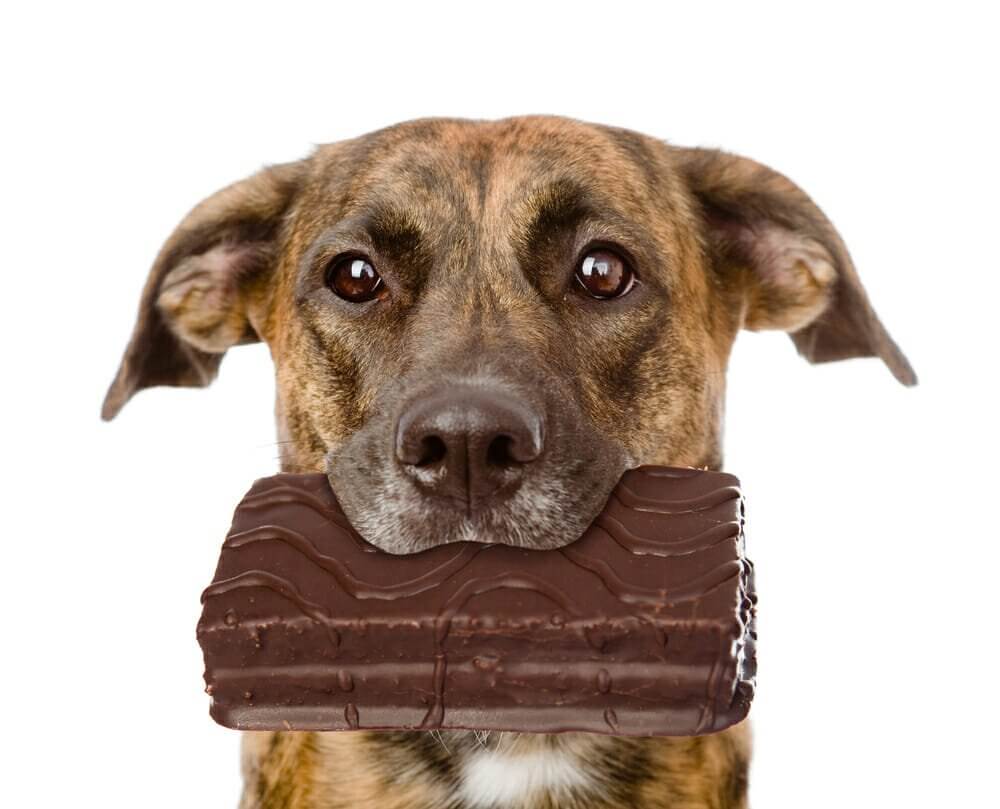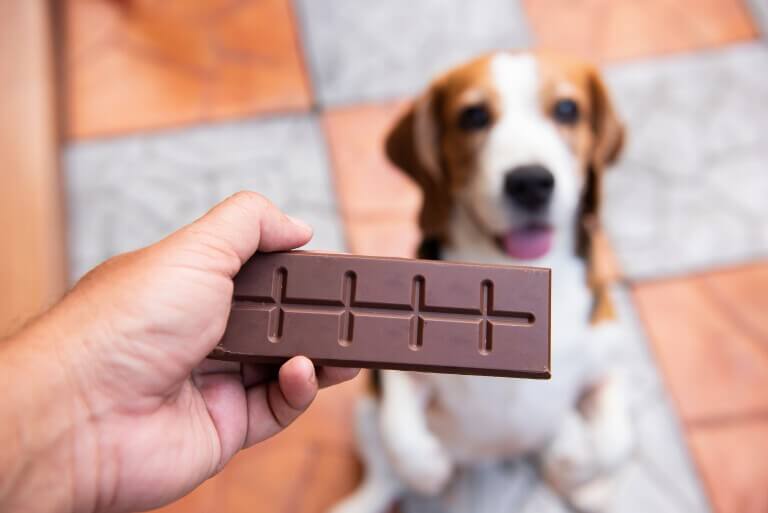Many horse owners wonder if it is safe to feed chocolate to their beloved equine companions. However, it is important to note that chocolate is NOT safe for horses to consume. Chocolate contains theobromine, a stimulant that can be toxic to horses. Even a small amount of chocolate can cause adverse effects such as increased heart rate, restlessness, and potentially life-threatening conditions like colic and seizures. Therefore, it is best to avoid feeding any form of chocolate to horses and opt for horse-friendly treats instead.

Symptoms of Chocolate Toxicity in Horses
Chocolate is a delicious treat for many humans, but it can be extremely dangerous for horses. Horses are highly sensitive to theobromine, a chemical compound found in chocolate that can be toxic to their system. If a horse consumes chocolate, it can lead to chocolate poisoning, which can have serious consequences. In this section, we will explore the symptoms of chocolate toxicity in horses so that you can identify and address this issue promptly.
1. Gastrointestinal Disturbances
One of the first signs of chocolate toxicity in horses is gastrointestinal disturbances. These can include symptoms such as colic, diarrhea, or constipation. The theobromine in chocolate can irritate the horse’s digestive system, leading to these uncomfortable and potentially dangerous symptoms. If your horse shows any sudden changes in their bowel movements or appears to be in discomfort, it is important to consider chocolate toxicity as a potential cause.
2. Increased Heart Rate
The theobromine in chocolate can also have a significant impact on a horse’s cardiovascular system. If a horse ingests chocolate, their heart rate may increase rapidly and become irregular. You may notice an elevated pulse, a faster-than-usual heart rate, or even palpitations. These symptoms can indicate a serious issue and should not be taken lightly. It is crucial to monitor your horse’s heart rate regularly and seek veterinary care if any abnormalities occur.
3. Hyperexcitability or Restlessness
Another common symptom of chocolate toxicity in horses is hyperexcitability or restlessness. The theobromine in chocolate acts as a stimulant, affecting the horse’s central nervous system. This can lead to increased energy levels, nervousness, and an overall sense of unease. If your horse exhibits signs of agitation, excessive fidgeting, or restlessness that is out of the ordinary, it could be a result of chocolate ingestion.
4. Muscle Tremors or Seizures
In severe cases of chocolate toxicity, horses may experience muscle tremors or even seizures. The theobromine can affect the horse’s muscles and nervous system, leading to uncontrollable shaking or convulsions. If you observe any abnormal muscle movements or seizures in your horse, it is crucial to seek immediate veterinary attention. These symptoms indicate a potentially life-threatening situation and should not be ignored.
5. Increased Urination and Thirst
The theobromine in chocolate is a diuretic, which means it increases urine production in horses. Consequently, horses that have ingested chocolate may experience excessive urination. They may also exhibit increased thirst as a result of the diuretic effect. If you notice that your horse is urinating more frequently than usual or seems consistently thirsty, it could be a sign of chocolate toxicity.
6. Changes in Behavior or Appetite
Finally, chocolate toxicity can also manifest through changes in a horse’s behavior or appetite. Horses that have consumed chocolate may exhibit a decreased appetite, refusal to eat, or a sudden aversion to their usual feed. Additionally, they may display unusual behavior, such as depression, agitation, or a lack of interest in their surroundings. These behavioral changes should not be ignored, as they are indicative of an underlying issue.
In summary, chocolate toxicity in horses can lead to a range of symptoms including gastrointestinal disturbances, increased heart rate, hyperexcitability, muscle tremors or seizures, increased urination and thirst, and changes in behavior or appetite. If you suspect that your horse has ingested chocolate, it is essential to seek veterinary assistance immediately. Quick intervention can help prevent further complications and ensure the well-being of your equine companion.

How to Keep Horses Safe from Chocolate Consumption
When it comes to horses, there are certain foods that can be toxic to them, and chocolate is one of them. While a small amount of chocolate may not be immediately harmful, it is important to take precautions to ensure your horse’s safety. In this section, we will discuss the dangers of chocolate consumption for horses and provide useful tips on how to keep them safe.
Dangers of Chocolate Consumption for Horses
Chocolate contains a substance called theobromine, which is toxic to horses. Theobromine stimulates the central nervous system and cardiovascular system in horses, leading to a range of health issues. If a horse ingests a significant amount of chocolate, it can result in symptoms such as increased heart rate, restlessness, tremors, and even seizures.
It is essential to remember that horses have a different metabolism compared to humans. While humans can digest theobromine relatively easily, horses have a limited ability to metabolize it, making them more susceptible to its toxic effects. Therefore, even a small amount of chocolate can pose a risk to their health.
Tips to Keep Horses Safe
1. Awareness: The first step in keeping your horse safe from chocolate consumption is being aware of the potential danger. Educate yourself about the harmful effects of chocolate on horses and make sure everyone who interacts with your horse is aware of this as well.
2. Secure Storage: Store chocolate and chocolate-containing products in a secure and inaccessible location. Horses are intelligent animals and may try to seek out treats, so ensure that chocolate is kept in areas where they cannot reach it, such as locked cabinets or high shelves.
3. Inform Others: If you board your horse or have others caring for them, inform them about the danger of chocolate. Provide clear instructions that chocolate should not be fed to your horse under any circumstances.
4. Substitute Treats: Instead of offering chocolate treats, find alternative options that are safe and enjoyable for your horse. There are many horse-specific treats available on the market that can be used as a substitute for chocolate.
5. Training and Reinforcement: Train your horse to refrain from eating anything other than their regular diet. Reinforce good behavior by rewarding them with approved treats and positive reinforcement techniques.
6. Emergency Preparedness: In case of accidental chocolate consumption, be prepared to take immediate action. Contact your veterinarian immediately and provide them with all the necessary information regarding the amount and type of chocolate your horse has ingested.
In summary, chocolate can be highly toxic to horses due to the presence of theobromine. It is crucial to take proactive measures to keep your horse safe from chocolate consumption. By being aware of the dangers, properly storing chocolate, informing others, using alternative treats, training your horse, and being prepared for emergencies, you can help ensure the well-being of your equine companion.

Alternative Treats for Horses to Enjoy
Just like humans, horses also enjoy indulging in treats from time to time. However, it’s important to provide them with alternative options that are not only delicious but also healthy for their well-being. In this section, we will explore some alternative treats for horses to enjoy.
1. Fruits and Vegetables
Offering a variety of fruits and vegetables is a great way to provide horses with a tasty and nutritious treat. Horses often enjoy the natural sweetness of fruits such as apples, bananas, and carrots. These can be given as whole pieces or chopped into smaller bite-sized portions.
In addition to fruits, vegetables like celery, cucumbers, and zucchini can also be included in their treat options. These choices not only provide essential vitamins and minerals but also add some variety to their diet.
2. Herbs and Spices
Herbs and spices can add flavor and nutritional benefits to a horse’s diet. Some popular options include mint, parsley, and rosemary. These herbs can be mixed with their regular feed or offered as a standalone treat.
Additionally, certain spices like cinnamon and turmeric can be incorporated into their treats. Not only do these spices provide a unique taste, but they also possess anti-inflammatory properties that can benefit your horse’s health.
3. Hay Cubes and Pellets
Horses naturally enjoy grazing on grass, so providing them with hay cubes or pellets can satisfy their foraging instincts. These treats are compressed forms of hay and can be offered as a snack or as a boredom buster.
Hay cubes and pellets come in different flavors such as alfalfa, timothy, or a mix of various grasses. This variety allows you to cater to your horse’s preference while providing them with essential fiber.
4. Homemade Treats
If you enjoy baking, why not try making some homemade treats for your horse? There are plenty of recipes available online that use horse-friendly ingredients such as oats, molasses, and flaxseed.
When preparing homemade treats, it’s important to ensure that the ingredients are safe for horses and that the treats are not overly sugary. Moderation is key when indulging your horse with homemade goodies.
5. Commercial Horse Treats
The market offers a wide range of commercial horse treats specifically made for equine consumption. These treats come in various flavors, shapes, and sizes, catering to different preferences and dietary needs.
When purchasing commercial horse treats, it’s important to read the labels and opt for options that are made with high-quality ingredients and minimal additives or artificial flavors.
In summary, there are many alternative treats that horses can enjoy while still maintaining a healthy diet. Whether it’s fruits and vegetables, herbs and spices, hay cubes and pellets, homemade treats, or commercial horse treats, there are plenty of options to keep your horse’s taste buds satisfied. Remember to offer treats in moderation and always prioritize their overall well-being when selecting treats for your equine companion.
When to Seek Veterinary Help for Chocolate Ingestion in Horses
Chocolate is a popular treat enjoyed by many people around the world. However, it can be harmful to animals, including horses, if ingested in large quantities. Chocolate contains theobromine and caffeine, which can be toxic to horses. Therefore, it is important to know when to seek veterinary help if you suspect that your horse has ingested chocolate.
Symptoms of Chocolate Ingestion in Horses
Recognizing the symptoms of chocolate ingestion in horses is crucial in determining when to seek veterinary help. Some common symptoms include:
- Increased heart rate
- Restlessness or agitation
- Excessive sweating
- Tremors or muscle twitching
- Difficulty breathing
- Abnormal behavior
- Colic
- Diarrhea
If you observe any of these symptoms in your horse and suspect chocolate ingestion, it is important to contact your veterinarian immediately for further guidance.
Amount of Chocolate Ingested
The amount of chocolate ingested by a horse plays a significant role in determining the severity of the situation. If your horse has consumed a small amount of chocolate, such as a few chocolate chips or a piece of chocolate, the risk may be relatively low. However, if your horse has consumed a large quantity of chocolate, such as a whole chocolate bar or a box of chocolates, the situation could be more serious.
It is important to provide your veterinarian with accurate information regarding the amount of chocolate your horse has ingested. This will help them assess the potential risk and provide appropriate advice or treatment.
Preventing Chocolate Ingestion
The best way to prevent chocolate ingestion in horses is to keep all chocolate products out of their reach. Horses are naturally curious animals and may be tempted to consume chocolate if given the opportunity. Store chocolate products in secure containers or cabinets to minimize the risk of accidental ingestion.
If you are planning to have chocolate around your horse, such as during a special occasion or event, ensure that it is safely stored and not accessible to your horse. Taking proactive measures can help avoid potential health issues.
When to Seek Veterinary Help
It is always recommended to consult a veterinarian if you suspect that your horse has ingested chocolate, regardless of the amount consumed. They will be able to evaluate the situation and provide appropriate guidance. In some cases, they may advise monitoring the horse closely for any adverse effects. In more severe cases, they may recommend immediate medical intervention to prevent further complications.
Remember, early intervention is crucial when it comes to chocolate ingestion in horses. Prompt veterinary assistance can help minimize potential risks and ensure the well-being of your horse.
In summary, if you observe symptoms such as increased heart rate, restlessness, tremors, or abnormal behavior in your horse and suspect chocolate ingestion, it is important to contact your veterinarian immediately. Provide accurate information about the amount of chocolate consumed and take proactive measures to prevent chocolate ingestion in the future.
FAQs
Is chocolate bad for horses?
Yes, chocolate is harmful to horses. It contains theobromine, which horses cannot metabolize efficiently and can lead to toxicity. Consumption of chocolate by horses can cause symptoms like increased heart rate, restlessness, and even potentially life-threatening conditions.
Conclusion
In conclusion, it is important to understand that chocolate should never be given to horses as it can be harmful to their health. Theobromine, a compound found in chocolate, is toxic to horses and can lead to serious medical repercussions. While horses may be attracted to the sweet taste of chocolate, it is crucial for their owners and caretakers to prioritize their well-being by avoiding any consumption of chocolate. Instead, proper nutrition and a balanced diet tailored to their specific needs should be provided. Ensuring a horse’s diet is free from chocolate is a responsible and necessary action to maintain their overall health and happiness.
